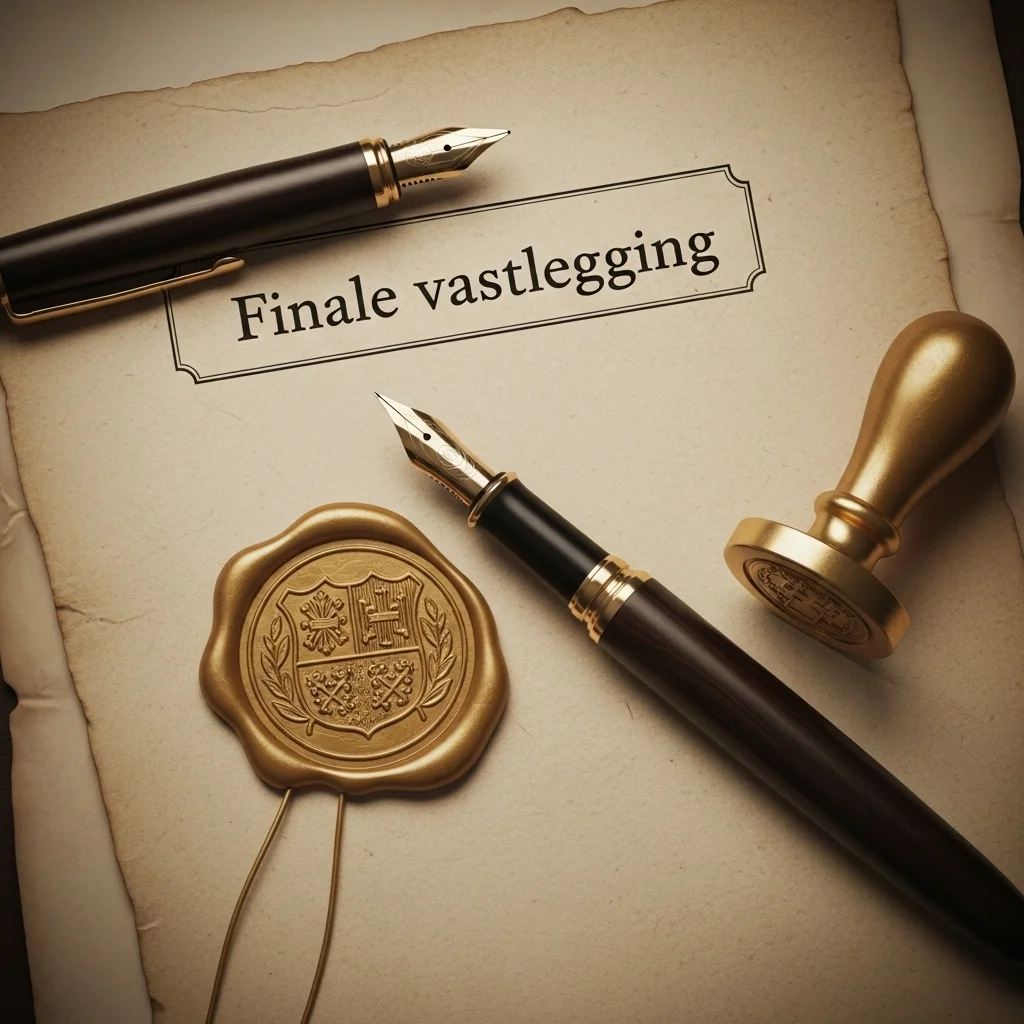First acknowledge the pain
Money is rarely the real issue; unresolved grief or skewed expectations lie beneath.
Automate
Soon after a death the bills, tax forms and cancellation letters arrive. By immediately granting one person software access (digital file, bank mandate) you prevent chaos and suspicion.
Document
Record in three sentences who gets the porcelain dinner service and why. So simple, so effective. Clear lists neutralise 70% of mini-conflicts.
Integrate
Appoint one neutral executor in your will who understands both the law and family dynamics. That avoids endless email chains between six heirs who each read something different in the same article of the law.
Reflect
Schedule a follow-up six months after the division. Talk about what went well and what hurt. It smooths the edges and strengthens family ties for the future.
The essence.
The essence

Arriving at a family picnic only to discover no one brought sandwiches: that is how it feels when no clear wishes exist for an estate.
What real-world experience shows
Spartner finds that four out of five disputes trace back to three pain points: poor communication, unclear roles and hidden emotions.
Why this matters
Conflicts drain energy and money and also slow the grieving process. Those who litigate for months postpone true farewell.
Emotions come before facts, so first create a safe space for dialogue
An independent mediator saves on average 30% of settlement time compared with a court route
Prevention always wins: a pre-inheritance conversation costs less than a single court filing
Step-by-step plan to avoid disputes.
Follow these steps to minimise inheritance conflicts.

Step 1 – The silent inventory.
Log all assets and debts before dividing anything. A missed €350 parking fine often lights the fuse.

Step 2 – The emotion check.
Have each heir separately express what the loss means to them. It sounds soft, but it lowers the volume in later meetings by a third.

Step 3 – The legal course.
Consider the law, the will and the forced heirship shares. Ignorance breeds rigid positions. A brief explanation by an inheritance lawyer brings instant clarity. Sub-step: appoint a professional administrator if the family is completely stuck.

Step 4 – The mediation track.
A mediator structures the discussion, guards timelines and keeps the door open to creative solutions, such as swapping the piano for extra square metres in the parental home.

Step 5 – Final documentation.
Have the agreements notarised. This prevents a forgotten email from later being interpreted as a binding promise. Small effort, big impact.


Questions about your situation?
There is no universal script for inheritance disputes, but a good conversation always helps. Call or email us, outline your case briefly and discover free of charge which step makes sense now. We listen, think along and show the way – no more and certainly no less.
A critical look at executors

Power, trust and control converge in one role
The executor can be a godsend or pour oil on the fire. Families often appoint someone 'because he is an accountant' without testing soft skills. Yet empathy often determines success. An executor who listens, explains and above all transparently accounts prevents distrust. Conversely, an executor who shares only figures without context quickly creates a sense of back-room politics. Remember: the law grants heirs a right to information; use it but do not abuse it.
Red flags
Unexplained delays in the estate inventory
No regular updates on bank balances
Private withdrawals 'for expenses' without justification
Bright spots
Monthly progress email with clear to-dos
Active invitation to all heirs to ask questions
Quick engagement of external valuers when asset values are in doubt
Practical hacks for a smooth settlement
From app groups to valuation tools
Rows often derail over details, so handle details smartly. Set up a joint WhatsApp group at once exclusively for factual updates. Separate emotion from information with a second, moderated mediator group. Use online estate apps so everyone can see what items exist, their value and who is interested. Such tools save travel time and arguments about 'who came first'.
Concrete examples
Upload every invoice within 24 hours to avoid surprises
Take clear photos of household items before division
Hire one certified valuer instead of three different ones – saves money and disagreements

Looking ahead: technology as peacemaker

Blockchain wills and AI-driven distribution
Within five years we will see smart contracts that automatically unlock bank accounts once all conditions are met. A sort of digital executor that acts emotionlessly and logs every transaction on the blockchain. That said, technology does not replace dialogue but can temper distrust. When transparency becomes standard, intentions are doubted less.
Possible innovations
Virtual safes with real-time access rights
AI advisers that predict conflict escalation based on chat language
Digital inheritance simulator: instantly see the tax and relational impact of a proposed division
1. Why do inheritances so often end in conflict? 🙂
Because money symbolises love, recognition and sometimes missed opportunities. If that undercurrent is not named, it erupts once the division starts.
2. Can inheritance disputes be completely avoided? 🤔
Not one hundred percent. But a clear will, open communication and early mediation drastically reduce the risk.
3. What does mediation cost on average? 💶
Rates vary but are noticeably lower than years of litigation. Plus the relationship usually stays intact, and that is priceless.
4. Who decides if one heir blocks everything? 🛑
The court can appoint an administrator or professional executor. That gets the process moving again, though it costs time and money.
5. Is accepting under benefit of inventory always wise? 🤨
It shields you from personal liability for debts but makes the settlement more formal. Get advice before you sign.
6. What if the will turns out to be invalid? 😱
Then the statutory distribution applies. Sometimes it pays to partially annul the will if certain clauses are unreasonable.
7. Can a minor heir object to the division? 🍼
Yes, through a legal representative or the appointment of a special guardian. This safeguards their interests.
8. How long does settlement usually take? ⏳
Without conflict, twelve to eighteen months. With conflict it can take years, especially when real estate or international assets are involved.
9. What exactly is a forced heirship share? 📜
It guarantees children a minimum amount even if disinherited. Note: you must claim the share within five years.
10. When should you call in an expert? 🚀
As soon as emotions take over or the law feels like a maze. An hour of advice can save weeks of frustration.
